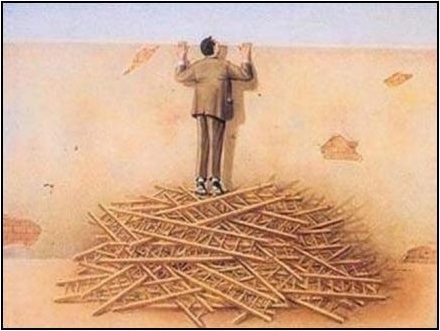A streak of mad scientist
I'm running some experiments. Pretty much all the time. In case of stuff I feel insecure with (but such one that still feels promising), I usually experiment with it in pet projects & during my semi-random hacking sprees (when I try some tricks on code I throw away later anyway). But I also tend to experiment regularly (once I feel confident enough ...) in solutions I get paid for - in code that ends up in production systems.
Frankly speaking:
- I don't always use the most obvious, simplest, least risky ways
- I don't always use stuff I'm the most familiar with or I find the most fit for the purpose
but:
- if I go for an experiment, I do it only with a strong belief (based on theoretical knowledge & usually some tinkering) that there' will be a worthy premium (not just for me, but for product / client / company) for the risk / uncertainty / additional effort
- I aim to be as transparent & fair as possible about what (& why) I do (about the outcomes as well)

However, don't be fooled - some of the experiments fail - they either don't bring the benefit I've expected or cons overcome pros (in the final aftermath).
So why do I risk my reputation, time, comfort & even money just like that? And why I'm going (just now) to convince you that you should to? :D
There's no learning w/o experiments
Obviously - I do it all to learn, Learn & LEARN.
Not just for the sake of pure learning itself. Learn to improve & broaden - both my working toolset & the work products as well. Simple metaphor explains it perfectly - you can easily tighten the loose screw with a manual screwdriver. But does it mean that you should do the same way once you have to assemble new set of furniture? Well, what about using cordless, electric screwdriver in this case? Yes, you have to pay for the tool first, but don't you think it could quite likely save you a lot of time?

You won't know for sure until you try. And once you do, you'll learn much more than "better or worse":
- that it's ok, but only for 2 hours (until the battery gets drained completely)
- it works well for beaverboard, but for solid wood you'd need a more powerful model
- if you use the highest speed on plywood, you're most efficient, but you may damage the material if you're not careful
- etc.
Not all ideas are good
Yes, some may experiments will end bad - and it's crucial to keep the risk under control - to minimize the damage.
But in the end, there's still space for benefit in failing - you may still be learning a lot from being erroneous. Of course failing again & again in exactly the same way doesn't feel like much progress in any dimension - if you don't (can't?) draw conclusion from experiment failures (so you can avoid them in future), there's something very wrong going on.
Facts VS opinions
I'm not going to convince you that the only worthy (applicable & valid) knowledge is from own practical past experience. Learning from theory & other's endeavours is very important of course (you've got to start based on some foundation, legacy of past generations of engineers, right? ;D), but in a real life, once confronted - theory always loses with practice.
Always.

The path to excellency is endless
The truth is - you can always get better. Not every, tiniest aspect can be improved whenever you need it, but be reasonable about that: you don't have to utilize your recent findings immediately, use them to broaden your palette of skills/tools for future, so once the corresponding problem/challenge/opportunity appears, you'll be prepared - armed to the teeth with suitable, battle-proven solutions.
So, always have some experiments running - not too many, because:
- negative consequences of shit hitting more than one fan in the same time may synergize & escalate quickly in a shitstorm beyond any recognition ...
- ... & experiments are useless once you can't assess their actual outcome in reliable way (yes, I mean "to measure") - when you run plenty of experiments, you may have problems with proper identification of what was the actual & exact cause of that particular effect
Keep tinkerin'
Pic: © kwanchaift - Fotolia.com








